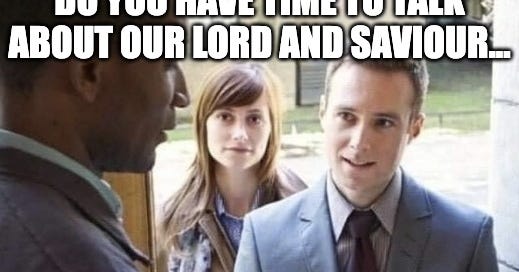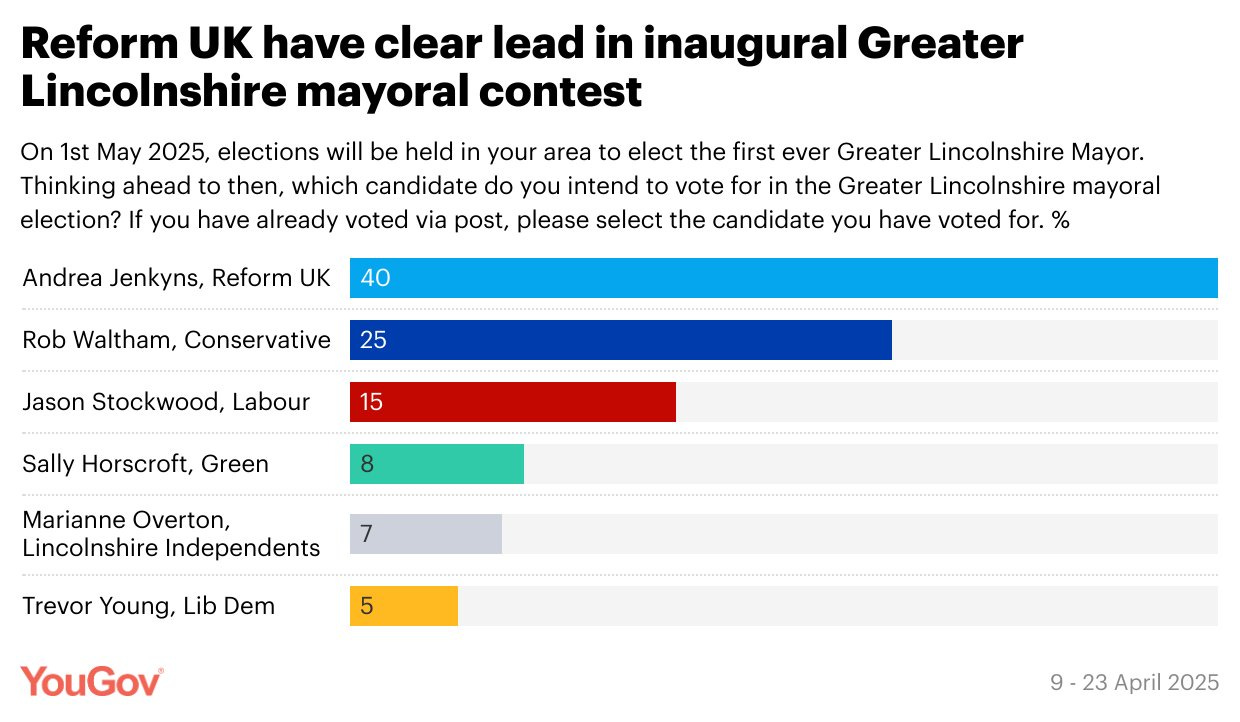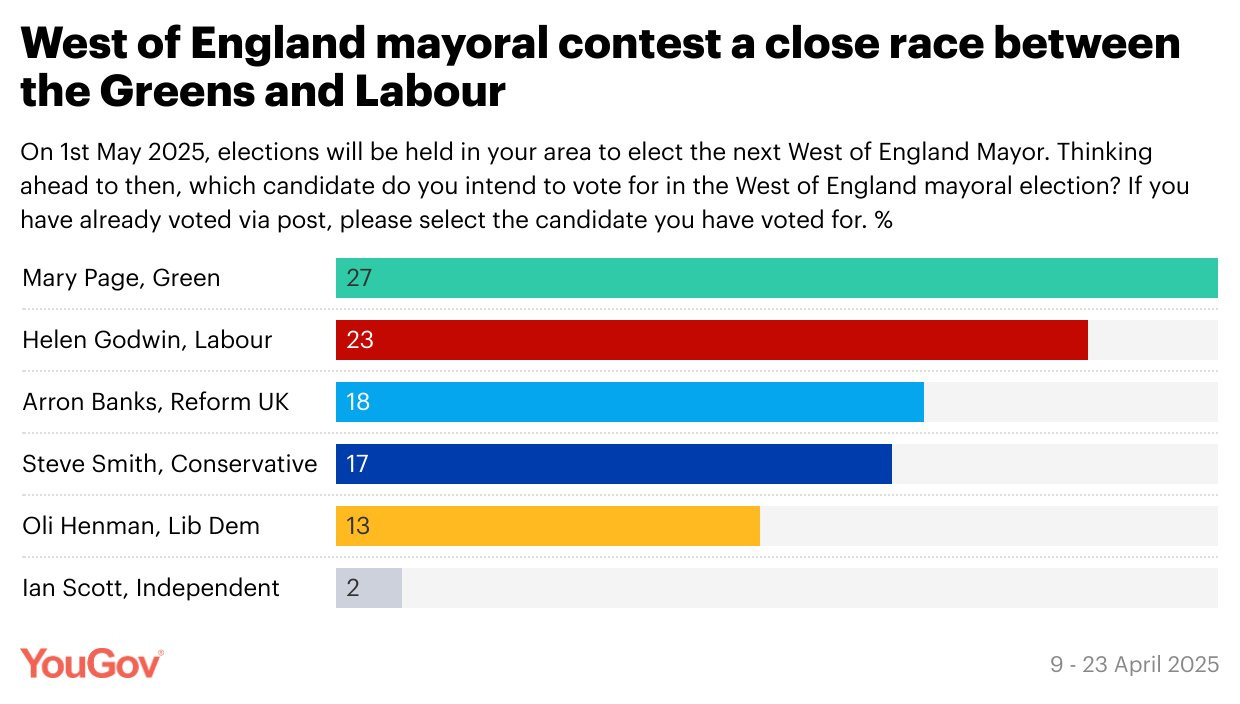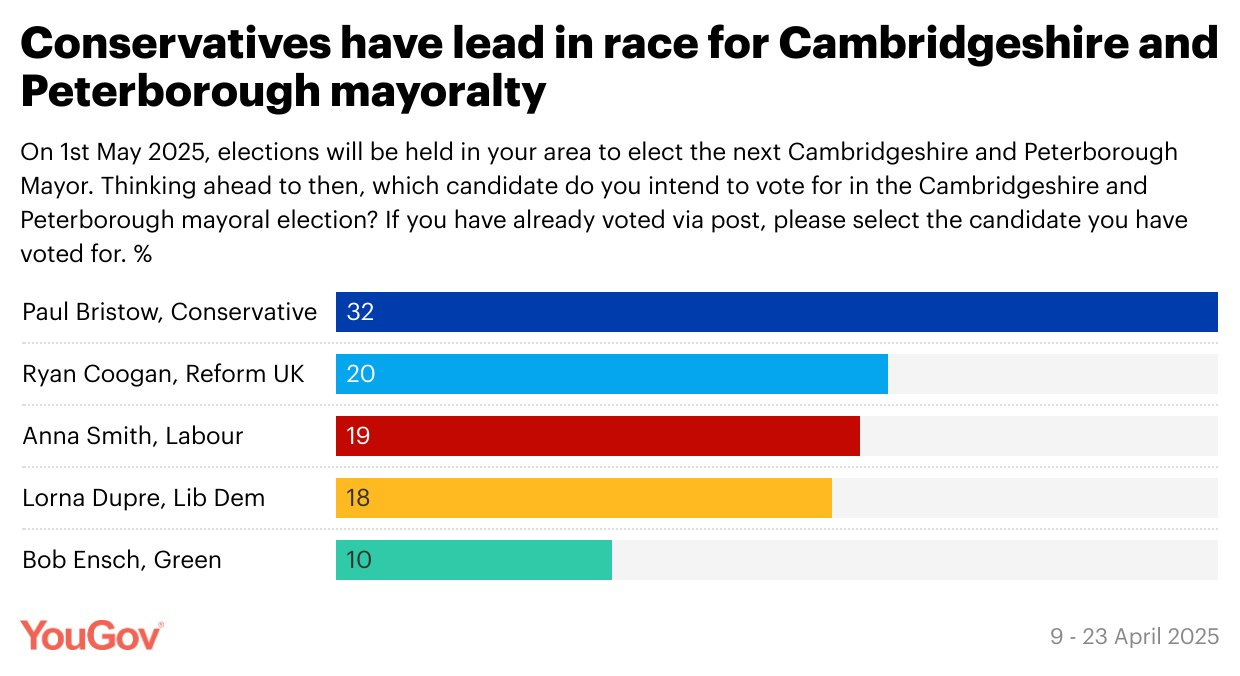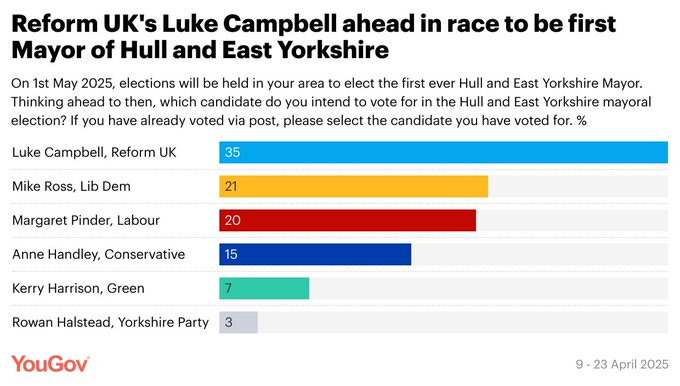Four mayors and a political funeral
The contests you need to be across ahead of Thursday, according to... me.
I’ve been working and focusing a lot lately on anything and everything not to do with British politics recently, with national elections in Australia, Germany, and Canada taking up most of my time and mental space since the start of the year.
But all birds come home to roost eventually, and here I am once again to talk to you about the annual serving of political drama that every British politics geek can rely upon: English local elections.
This cycle is the smallest of the four rotating sets of contests which happen in England - and was made smaller still by the cancellation of no fewer than nine council elections earlier this year, owing to the extensive ongoing reorganisation of local governments up and down the country.
But elections are going ahead in many areas. Alongside 21 county councils, eight unitary authorities, and one metropolitan borough (Doncaster), four combined authority mayoral positions are up for grabs this coming Thursday.
It’s on those mayoral contests that I will mostly be working for the BBC’s coverage of the elections (starting late on Thursday night, all the way through into Friday evening), so it is they I will focus on for this post.
Greater Lincolnshire
I’ll start with the contest with which I am most personally familiar - Greater Lincolnshire. A younger Patrick spent eight years growing up in the county, and I still have family ties there (yes, it is pretty much exactly as flat as everyone says it is, apart from that one hill).
Late last year I wrote something about how I thought this could have the potential to turn into a three-way contest, should the Conservatives and Reform UK split the right-wing vote between them and should Labour’s campaign motivate and turn out their voters in the more urban areas of Lincolnshire in which they did well in last year (Lincoln, Scunthorpe, and Greater Grimsby).
According to YouGov’s polling of the race, that hasn’t happened.
Instead, Reform UK’s Andrea Jenkyns looks to have a mobilised a clear majority of Lincolnshire’s political right, and seems set to become the historic county’s first ever mayor.
Labour may well end up outperforming the 15% we had them at in this poll, but the message Lincolnshire voters told us over our fieldwork period last week was quite clear - this does not look like a three-horse race.
A note generally on polling for any sort of local elections (including mayoral): it is very, very difficult. Much more difficult than traditional, national vote intention polling (and that’s hard enough!).
The key reason being is that local election voters are a very specific subset of the overall electorate. Only about 30-35% of registered voters turn out for such contests (when there isn’t also a larger election, such as a general election) going on. That in turn is only about 20% of the adult population. Trying to speak to that 20% in online polls and estimate which of them will actually turn out and who they will vote for is a big challenge.
For the sake of serving our public data mission, and providing information to stakeholders and interested parties, it is a challenge we at YouGov are always happy to take on. But I would urge anyone reading this post to remember the scale of that challenge when we compare these polls to the results on Friday.
West of England
Onto a different contest which is very much a multiparty battle, former local councillor and business leader Helen Godwin is looking to defend the West of England mayoralty for Labour. The task will be a difficult one, according to YouGov polling, with Godwin in a close fight with Mary Page of the Greens.
Some may be surprised to see the Greens potentially in with a chance of winning their first ever combined authority mayor position, but West of England of course contains the city of Bristol, where the Greens added one of their three extra MPs they won in 2024 (Carla Denyer, Bristol Central) and came within a whisker of taking the city council in the May before.
And this is not just a two horse race: both Aaron Banks (yes, that Aaron Banks) of Reform UK and Steve Smith (no, not that Steve Smith) for the Conservatives were within ten points or less when we polled the West of England public last week.

Whoever wins the West of England race will be highly unlikely to do so with the kind of dominant vote share we are probably expecting from Reform UK in Lincolnshire.
Much more likely the eventual champion of what is a very politically diverse section of South West England will squeak past their nearest rival with something around 30% of the vote.
Looking across the rest of the polling (see above and below), the West of England could be Labour’s best chance of walking away from Thursday’s contests with a combined authority mayor win to their name.
Cambridgeshire and Peterborough
Moving Eastward and to another contest we expect to be close, and the combined authority of Cambridgeshire and Peterborough is set to elect its third mayor in as many contests, with 2021 Labour winner Nik Johnson not seeking re-election.
YouGov polling suggests that the Conservatives are in a good position to re-take the Cambridgeshire and Peterborough mayoralty off Labour, in what could be a rare moment of good news for Kemi Badenoch’s party on a night in which they are expected to struggle to defend a high watermark 2021 baseline (remember Boris Johnson and the vaccine bounce?) against insurgent parties from all sides (though not including Labour).
Cambridgeshire and Peterborough is another mayoralty which covers an interesting patchwork of different sorts of political contests, and we need only look at the 2024 general election results for confirmation of that.
Cambridge itself is of course currently a pretty safe Labour seat at the Westminster level, but is an island in a sea of what is now Liberal Democrat gold, but was previously Tory blue, surrounding it. Peterborough is an ultra-marginal between Labour and the Conservatives, but the latter still comfortably won the adjacent Cambridgeshire North East. Reform UK put on a healthy vote share across the board, without winning any seats themselves.
Though the Conservatives (we think) led the battle last week, this has the potential to be another closely-ran thing.
Hull and East Yorkshire
The final contest this post will take a look at is taking place just north from Greater Lincolnshire and across the Humber Bridge (which by the way is a marvellous feat of engineering - go see it, and cross it, if you haven’t already).
Here, our YouGov polling last week put the Reform UK candidate Luke Campbell - a former champion boxer - well ahead of his rivals. Speaking after carrying out focus groups in the region, More In Common Director Luke Tryl noted how voters there had warmed to Campbell and his “not a politician” attitude and approach to the campaign and the voters he is trying to win over.
Mike Ross of the Liberal Democrats was in a virtual tie with Margaret Pinder of Labour in a race which includes the oft-hung, always hotly contested (between the Lib Dems and Labour) Hull city council.
The rest of the combined authority brings in some large towns, small towns, and rural areas which we would typically identify as traditionally Conservative heartlands. But in the era of a surging Reform UK, that status (and indeed the status of Hull as a Labour-Liberal marginal) is very much under threat.
Reform winning in Hull and East Yorkshire would be quite the statement from the party. Nigel Farage’s outfit did well in the area - particularly in Hull itself - in the 2024 General Election but were well beaten by their rivals in every seat except Kingston upon Hull East (where they lost by 13 points to Labour). Taking the mayoralty would be a significant step up from that.
So, what’s the story?
It’s very, very possible that Labour go 0/4 this year, which would be quite the change of fortunes from their last second snatching of the West Midlands mayoralty from under Andy Street’s nose in 2024 in what was, let’s be honest, overall a pretty blockbuster year for Starmer and his party.
Not winning a single of these contests would be a significant battery of cannon fire across the bows of the good ship Number 10. This is of course Labour’s first ballot box examination since taking power for the first time in 14 years. If zero combined authority mayor wins is coupled with a loss in the Runcorn and Helsby by-election and a poor performance in the council wins/losses ticker, grumbles of discontent will surely become full blooded shouts.
For the Conservatives, they may make a pickup in Cambridgeshire and Peterborough but this could be one of their few moments of solace - as their win in Tees Valley was in 2024 - in what is otherwise shaping up to be a bruising night for the official opposition.
This is not a position that Badenoch would want her party to be facing as they try to rebuild and present a front to the British voting public which looks like it has momentum and is ready to lead again.
Reform, the Greens, and the Liberal Democrats will all be looking to make gains on Thursday, and our polling expects that the former two (and Reform UK in particular) have a great shot at doing so in the mayoral contests as well as the local council ballots.
